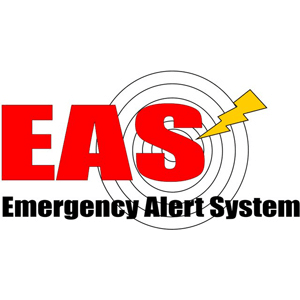FCC Approves Repeating EAS Alerts


“With these rules in place, millions of Americans would benefit from more timely and accurate information during emergencies,” said Commissioner Geoffrey Starks. He said the impact of climate change, as evidenced by record-breaking heat and an early start to the wildfire season in the West, will only likely put more emphasis on EAS.
The order (PS Docket No. 15-94) also combined the current “Presidential Alerts” category, which is non-optional on mobile devices that receive Wireless Emergency Alerts, into a new non-optional alert class called “National Alerts.” The order makes no mention of political polarization. Instead it points out FEMA has endorsed the rebranding by saying it “better reflects the new broader use of national alerts.”
The FCC devlines to create a new national security-related originator code or event code. A big reason is the financial costs it would take to update thousands of EAS receivers in use. The FCC also agreed with the National Association of Broadcasters, which said a new national security event code “could create confusion when used for events that currently fall under other event codes.”
The order adopted Thursday will also expand reporting requirements to FEMA, state, and local entities to email the FCC alerting it of any false alerts transmitted. But while reporting false alerts for radio, TV and wireless companies has become mandatory, the Commission has tentatively concluded no such requirement will be placed on the government entities that in some cases could be the source of the mistake. It will only suggest they email the FCC letting them know what occurred.
